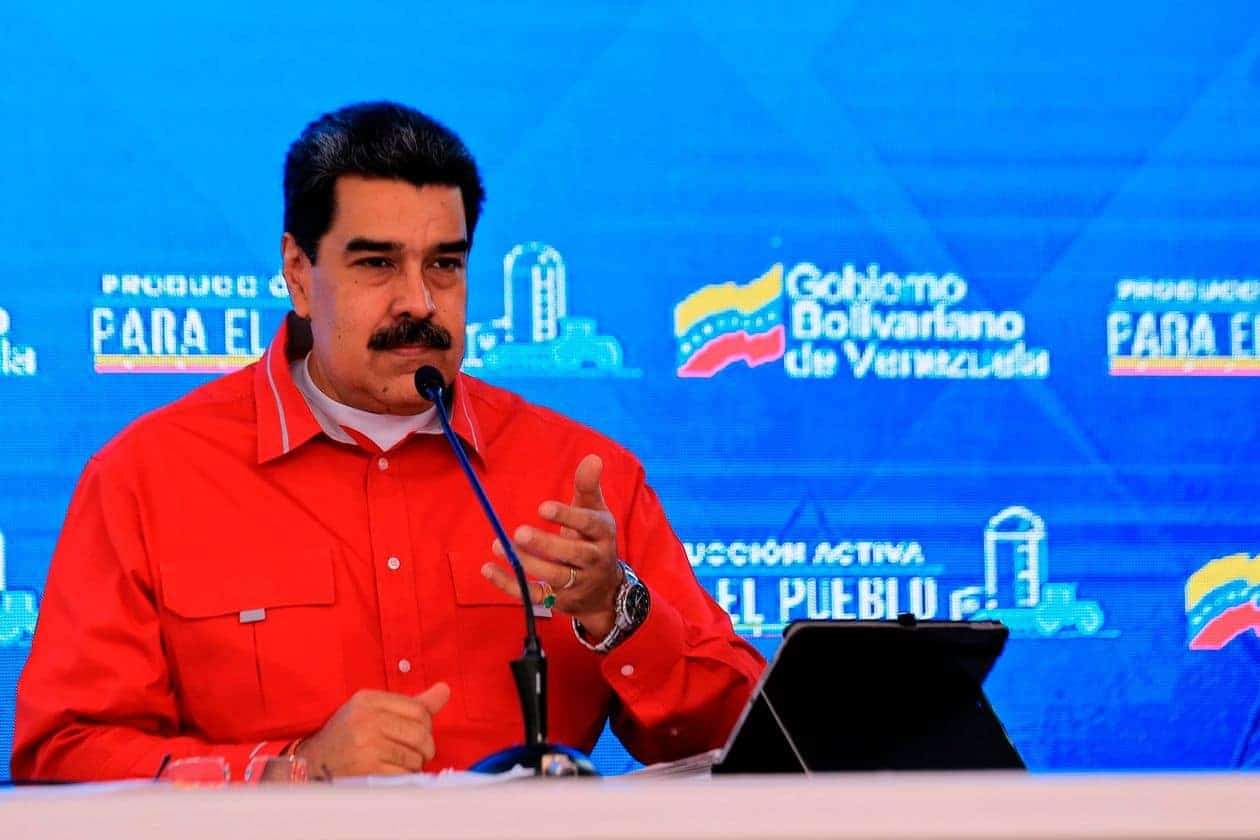U.S. Sanctions Firms, Tankers It Accuses of Exporting Venezuelan Oil

The Trump administration on Thursday blacklisted more than a dozen individuals, their businesses and tankers alleged to have been involved in as much as 40% of Venezuela’s crude-oil exports in recent weeks.
The U.S. Treasury Department, announcing the sanctions, alleged the operations formed an effort by the Maduro regime to siphon state resources into personal accounts.
A senior U.S. Treasury official said a much longer list of vessels had been planned, as previously reported by The Wall Street Journal, but emergency action taken by the private sector to stop Venezuela transactions prompted the administration to prune the list.
The Treasury also took two of four companies and their tankers recently sanctioned by the U.S. off its blacklist, because it said the companies cut their ties to Venezuela. The official said the action showed the effectiveness of the administration’s broader campaign to cut off funding to the regime of President Nicolás Maduro as companies responded by cutting business ties to the country.
The action targeted a Mexico-based trade company called Libre Abordo S.A. de C.V. that signed contracts with Venezuela’s state companies to ship food to the country in exchange for crude exports. The company sold oil worth roughly $300 million in recent weeks, but hasn’t shipped any food to Venezuela, the Treasury alleged.
The operations were orchestrated by Colombian businessman Alex Saab, according to the Treasury. Mr. Saab was detained last week in the African island nation of Cape Verde by officials acting on an Interpol notice issued after his indictment in the U.S. for alleged money-laundering offenses last year, a U.S. Justice Department spokeswoman said.
The company didn’t immediately respond to a request for comment on the sanctions, but Veronica Esparza Garcia, one of Libre Abordo’s owners sanctioned by the U.S. on Thursday, previously told the Journal that the allegations were false. She also said the company planned to deliver humanitarian aid in the coming months, and that the firm had no ties to Mr. Saab.
Marlon Geoffrey Kirton, an attorney for Mr. Saab, didn’t immediately respond to a request for comment. Mr. Kirton, according to court documents, is currently in plea negotiations after originally submitting a plea of not guilty for Mr. Saab.
The Venezuelan mission to the United Nations didn’t respond to a request for comment.
Major companies involved in the shipping industry scrambled in recent days to determine whether their businesses were complying with U.S. sanctions amid a renewed push by the administration to cut off the revenue flows keeping the Maduro government in power. Officials say diplomatic outreach by the State and Treasury departments, including the threat of punitive action, as well as new federal guidance warning the private sector to guard against sanctions evasion and a spate of blacklistings, is squeezing the regime’s remaining revenue sources.
Thursday’s action “focused on those companies that persisted past all warning signals and continued to lift crude,” the senior official said.
Still, Deputy Secretary of Treasury Justin Muzinich warned of additional sanctions ahead. “The U.S. will continue to relentlessly pursue sanctions evaders who plunder Venezuela’s resources for personal gain at the expense of the Venezuelan people.”
Libre Abordo became one of Venezuela’s primary crude export brokers in recent months, Treasury said, after Russia’s state energy firms stepped back from its engagement in the country amid U.S. sanctions pressure.
The U.S. said Libre Abordo and an associated firm handled 30 million barrels of Venezuelan crude on behalf of Petroleos de Venezuela S.A., the state oil firm that the U.S. and former executives say is one of the primary money-laundering vehicles for the Maduro government. The oil exports, banned under U.S. sanctions, were shipped to China, Malaysia and Singapore, the senior Treasury official said.
Joaquin Leal Jimenez, a Mexican businessman also blacklisted on Thursday, acted as the intermediary between those companies and Mr. Saab, the U.S. alleged.
A person answering a phone number associated with one of Mr. Leal’s sanctioned companies, Luzy Technologies LLC, declined to comment.
Mr. Saab, working in collaboration with a top Venezuelan official, Tareck El Aissami, who has been accused by the U.S. of running a multi-billion-dollar drug-trafficking enterprise, has also used the emergency-food program, gold exports and other state contracts to launder money for the regime, U.S. officials say.
Photo: The Trump administration has sought to cut off funding to the regime of Venezuelan President Nicolás Maduro. - JHONN ZERPA/VENEZUELAN PRESIDENCY/AGENCE FRANCE-PRESSE/GETTY IMAGES











